GPTs, the no-code way to create custom ChatGPT experiences from OpenAI, allow brands to reach ChatGPT users in the GPT Store.
Considering that 80% of Fortune 500 companies have registered OpenAI accounts, it’s an important market segment for most businesses to engage.
It gives people new ways to try your brand’s products and services while increasing your brand’s visibility in search results.
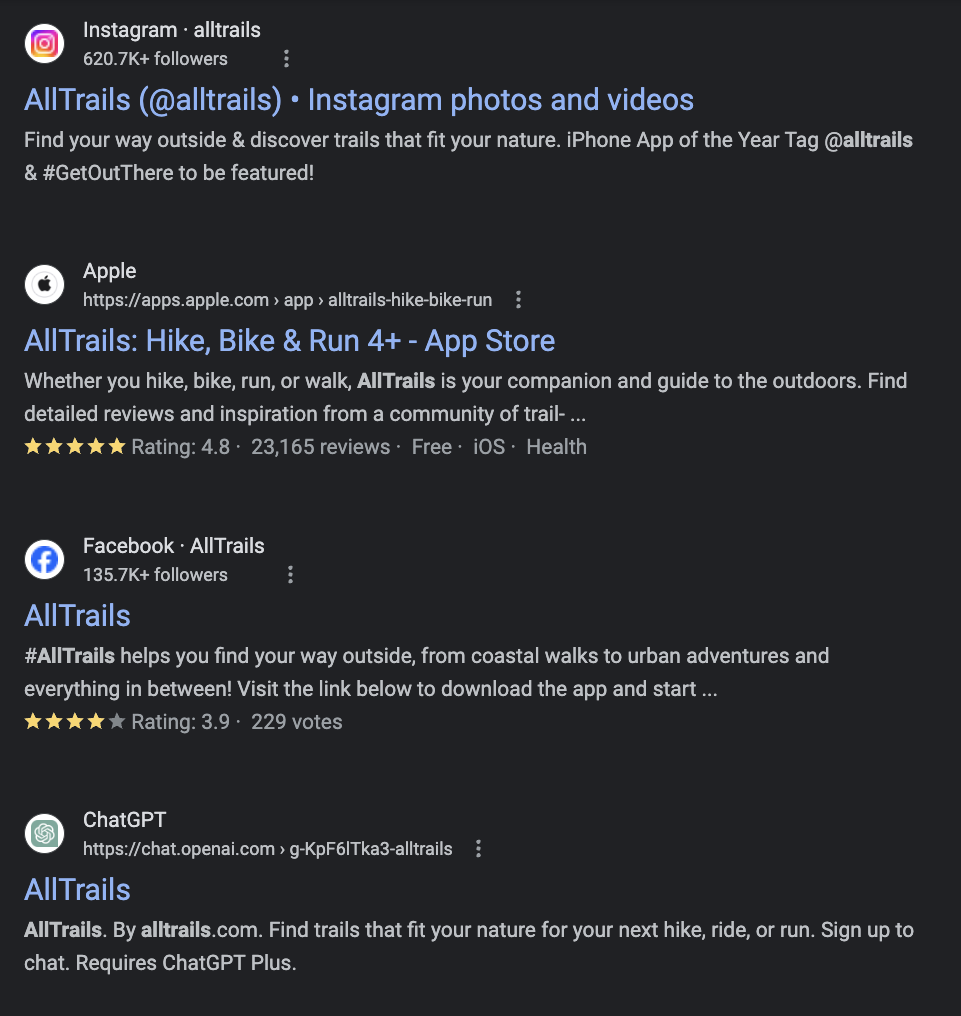 Screenshot from Google, February 2024
Screenshot from Google, February 2024Since the launch of GPTs in November 2023, OpenAI’s website has gained more visibility in Google Search, as Semrush shows.
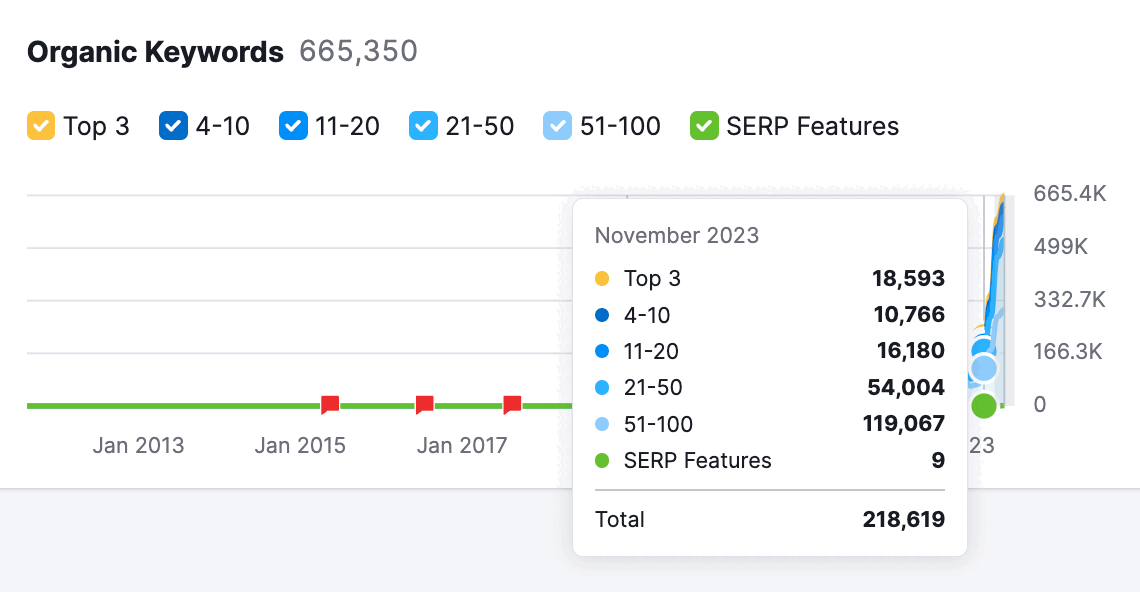 Screenshot from Semrush, February 2024
Screenshot from Semrush, February 2024 This allows OpenAI to rank on the first page of search results for keywords that are typically very hard to rank without “a lot of on-page SEO, link building, and content promotion efforts.”
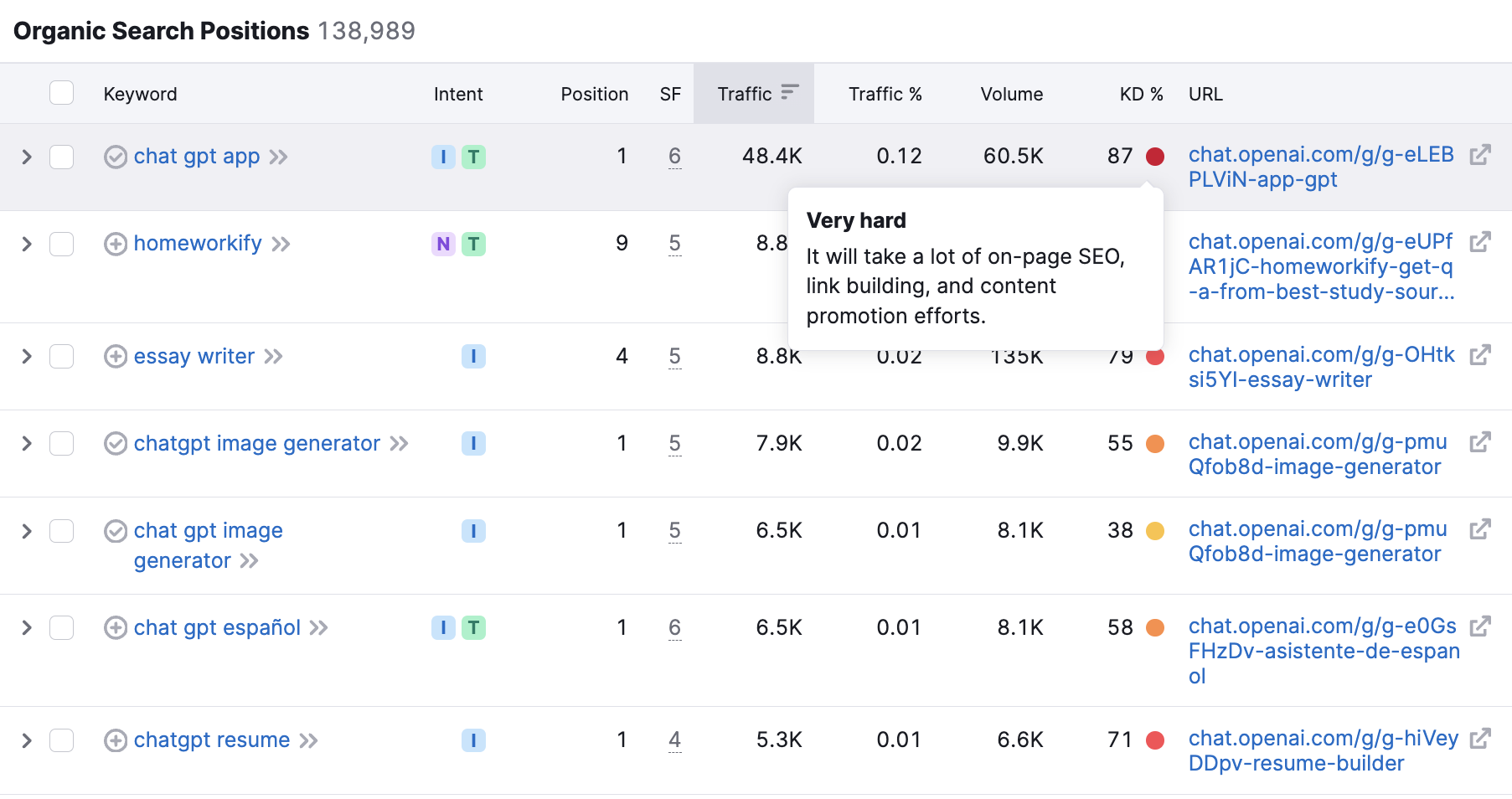 Screenshot from Semrush, February 2024
Screenshot from Semrush, February 2024Continue reading for six ways to optimize your GPT for increased online visibility and clicks in the GPT Store, search results, and the top social networks featured throughout Google SERPs.
1. Naming Your GPT: Brand Name Vs. Keywords
When you optimize any page or piece of content for search, you can focus on optimizing it for your brand name or a specific set of keywords.
Google Search Advocate John Mueller suggests focusing on branding if you are working toward a long-term marketing strategy.
GPT names can be up to 50 characters, making them the perfect length for an SEO title tag.
More importantly, when someone searches for a GPT in the GPT Store, GPTs with the search term in the title appear over top GPTs.
Let’s use Wolfram, one of the featured GPTs, as an example.
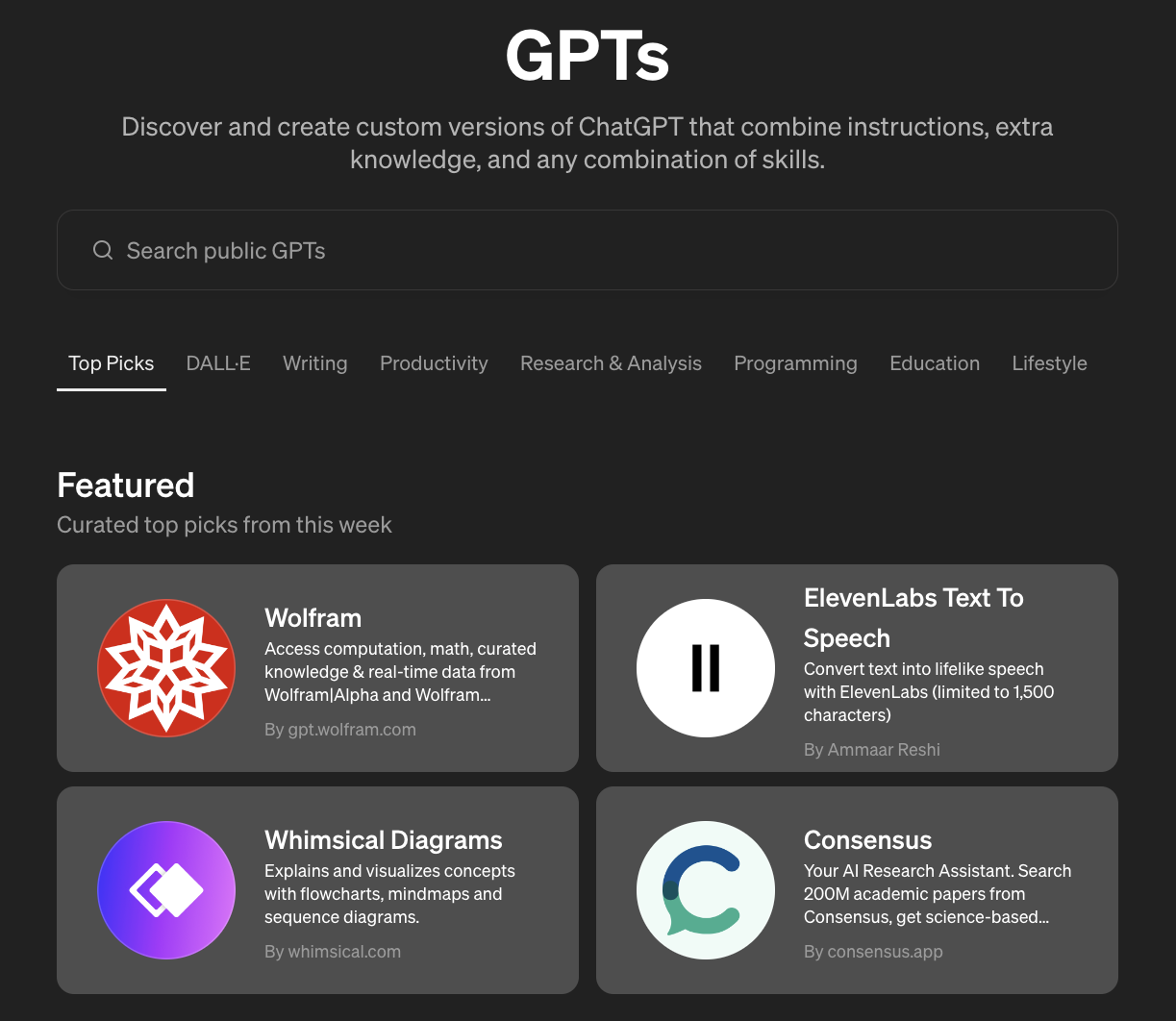 Screenshot from ChatGPT, February 2024
Screenshot from ChatGPT, February 2024While the Wolfram GPT description includes keywords like math and real-time data, users who search for those keywords in the GPT store won’t find the Wolfram GPT.
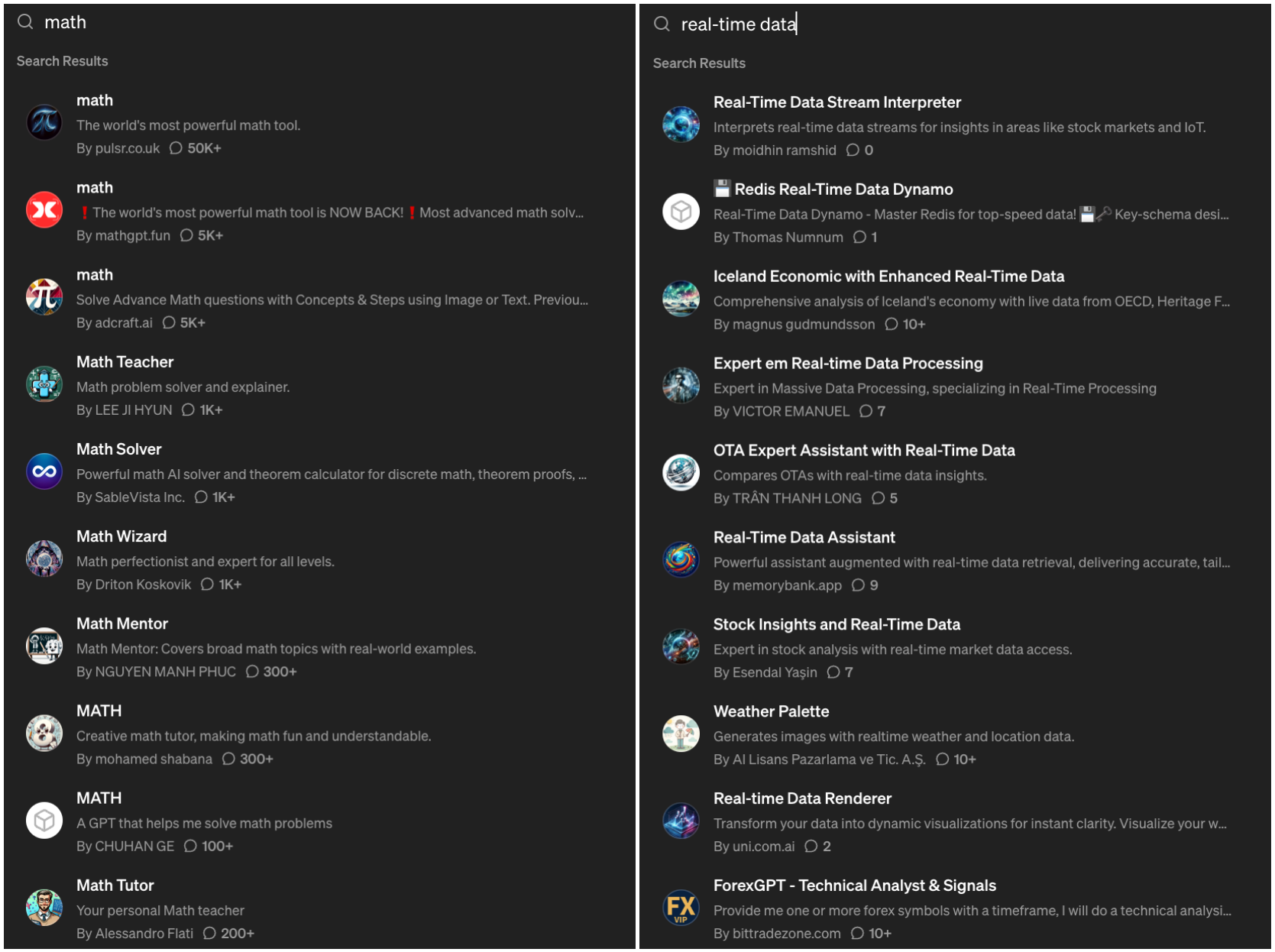 Screenshot from ChatGPT, February 2024
Screenshot from ChatGPT, February 2024That leaves GPT builders with the following options:
- Use the keyword as the name of the GPT, like trending GPTs image generator and Logo Creator.
- Use your brand as the name of the GPT, like Canva and AllTrails.
- Use a combination, like Video GPT by Veed and Kayak – Flights, Hotels & Cars.
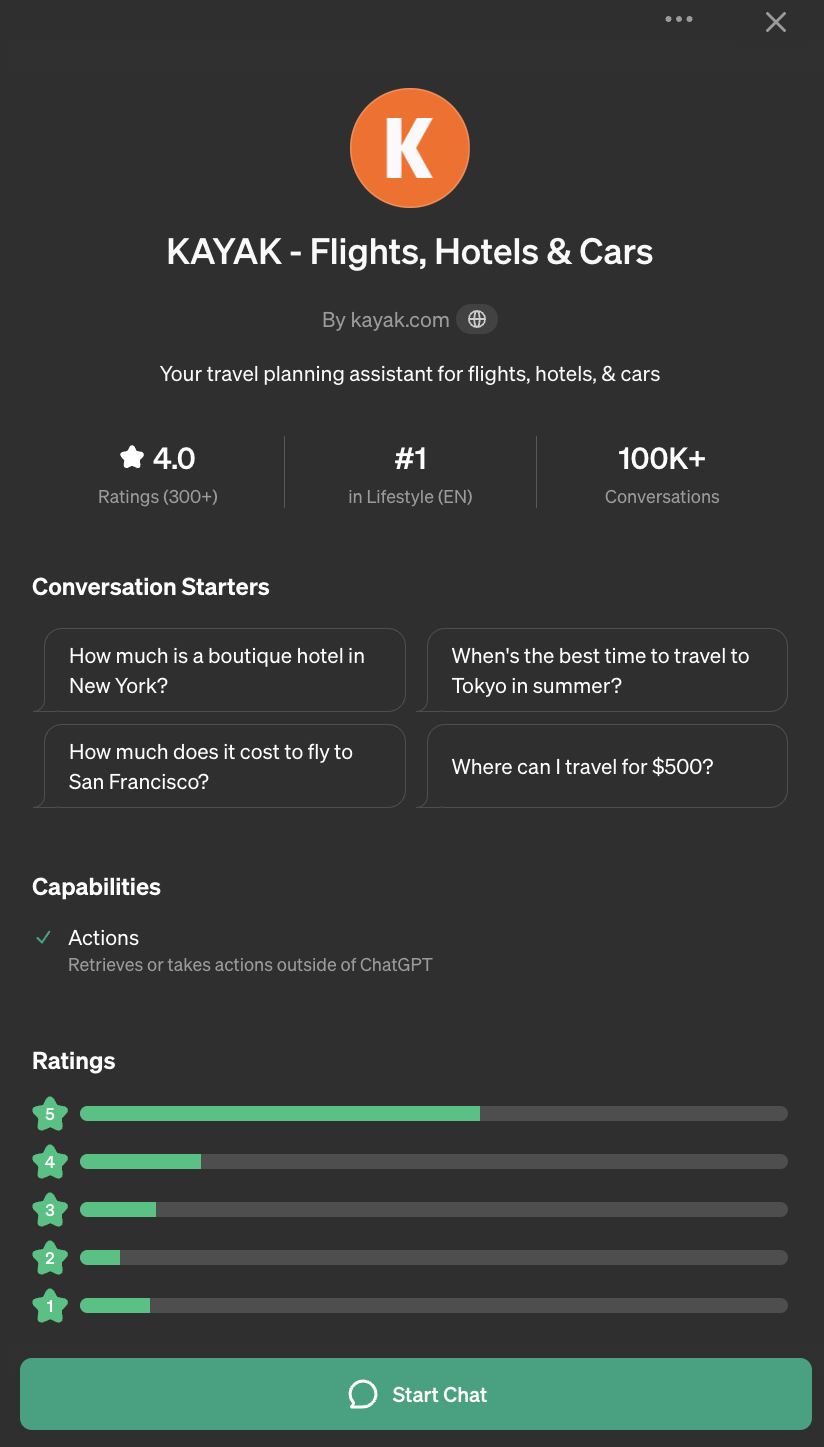 Screenshot from ChatGPT, February 2024
Screenshot from ChatGPT, February 20242. Craft A Concise GPT Description
When writing the description for your GPT, you have up to 300 characters to convince someone to click on it from the GPT Store’s explore page or in search results.
Concisely incorporate key features and benefits to ensure the GPT description resonates with your intended audience.
Some brands, like AllTrails, have short, 80-character descriptions.
 Screenshot from Google, February 2024
Screenshot from Google, February 2024For GPTs with longer descriptions, the GPT Store truncates descriptions over 104 characters.
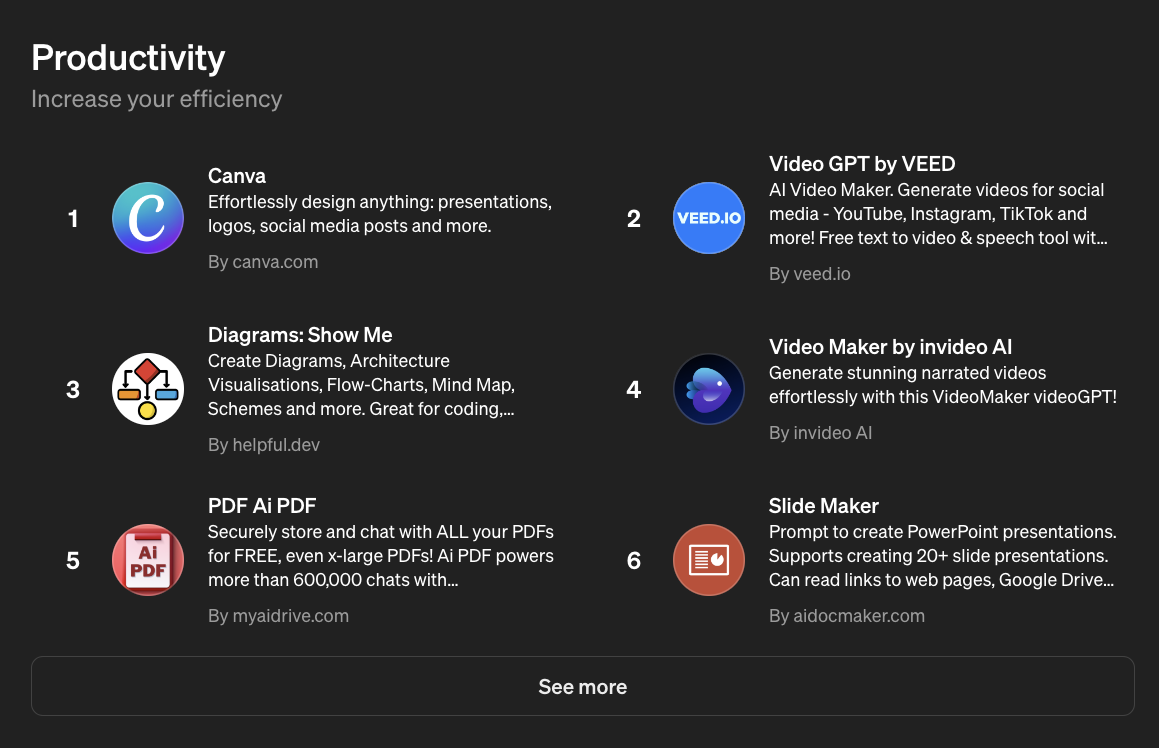 Screenshot from ChatGPT, February 2024
Screenshot from ChatGPT, February 2024Similarly, only the first 142 characters of the description appear in Google search results.
 Screenshot from Google, February 2024
Screenshot from Google, February 2024You may have 300 characters to work with when configuring your GPT. But if you want to increase clicks to your GPT from the GPT Store and search results, include the most important details and benefits for your GPT within the first 100 characters.
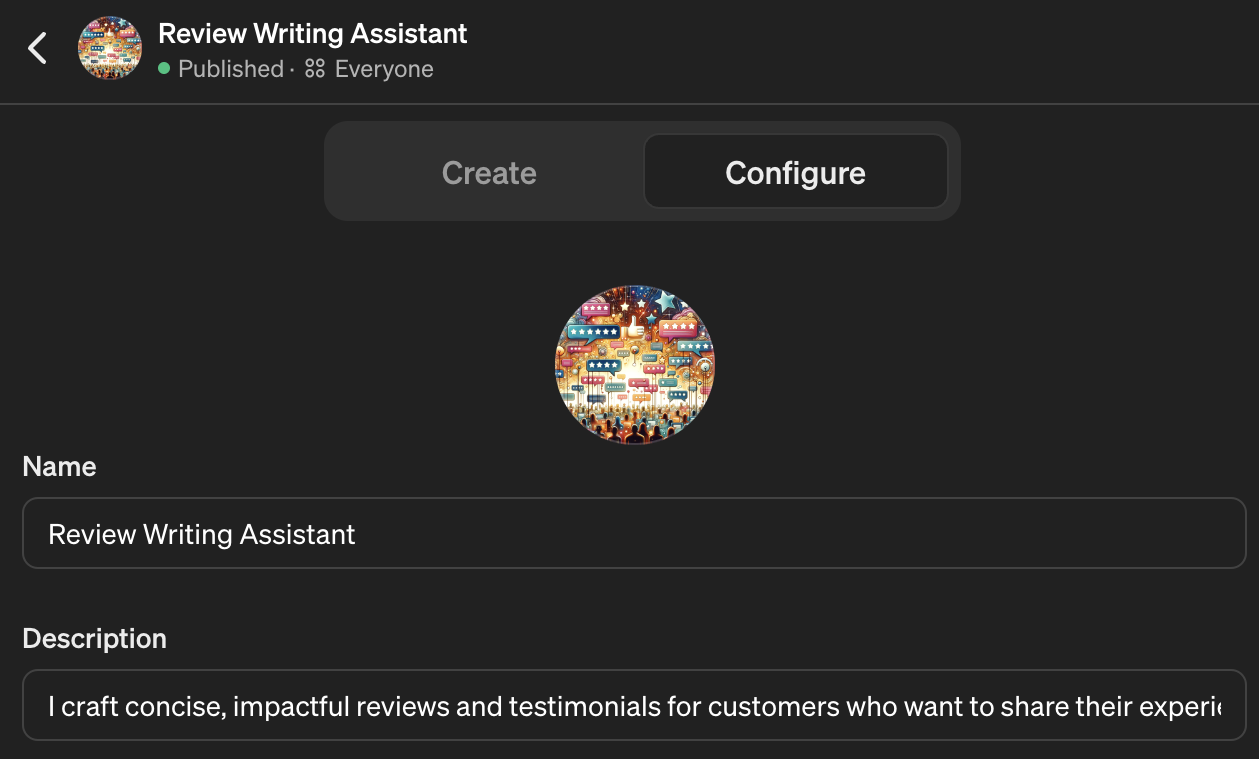 Screenshot from ChatGPT, February 2024
Screenshot from ChatGPT, February 20243. Use A Recognizable Profile Image
During the GPT creation process, the GPT Builder will use DALL·E 3 to create a profile image for your GPT. As you can see from the example above, it does a good job of creating a visual representation of your GPT’.
But if you have a recognizable brand, you may want to add a custom image with your brand logo or something your current customers would recognize.
Khan Academy uses its main logo for its GPT images. This helps them stand out as well-known in the GPT Store’s Education section.
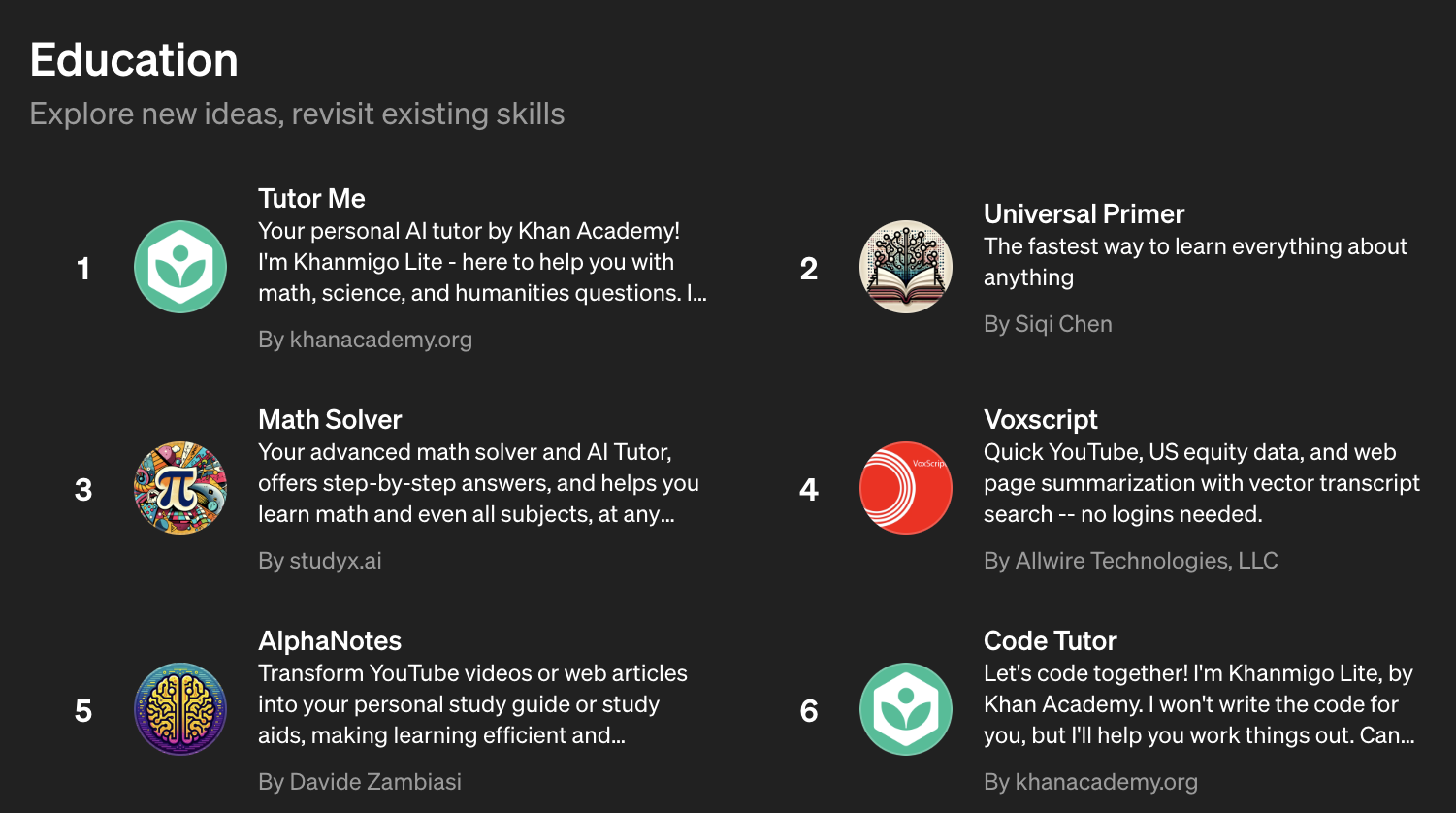 Screenshot from ChatGPT, February 2024
Screenshot from ChatGPT, February 2024The use of the website as the builder profile name also helps. Unfortunately, your name can’t be changed in the Builder Profile – it’s pulled from your account’s billing details.
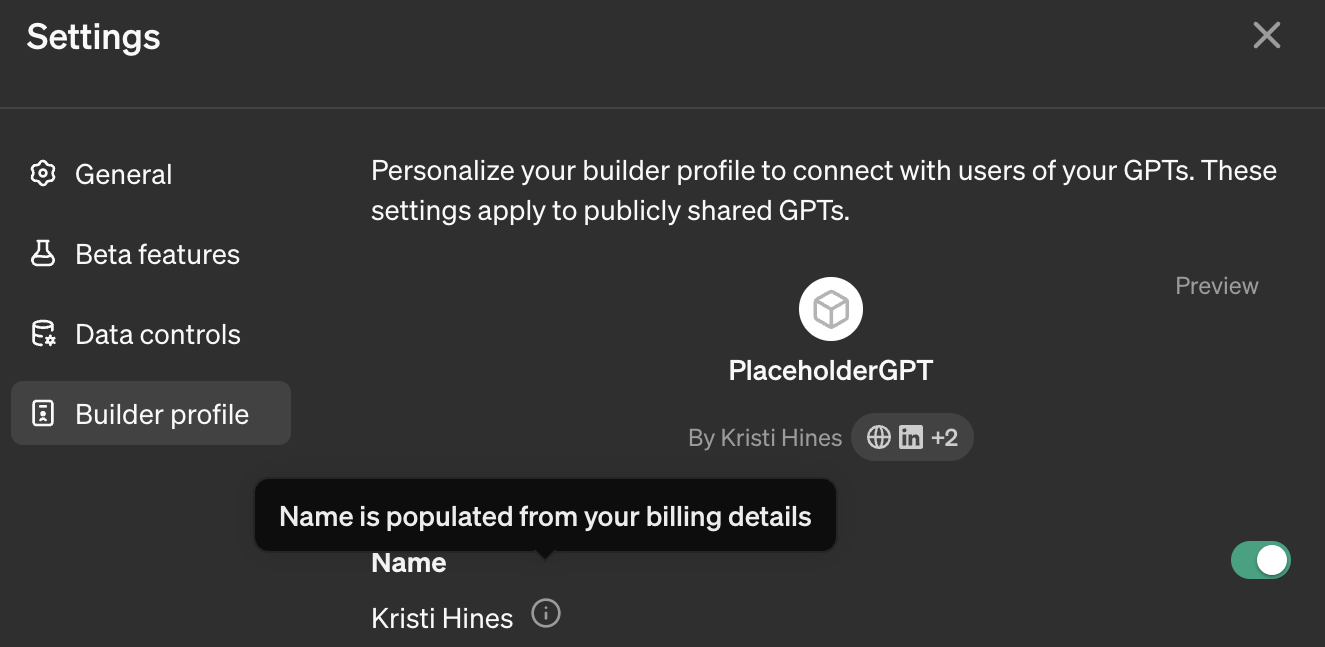 Screenshot from ChatGPT, February 2024
Screenshot from ChatGPT, February 20244. Add Your Verified Website Link
Fortunately, you can add your website link to your GPTs by verifying your domain in your builder profile.
Adding a verified website link to your GPT can give users who are already familiar with your brand increased confidence in the GPT.
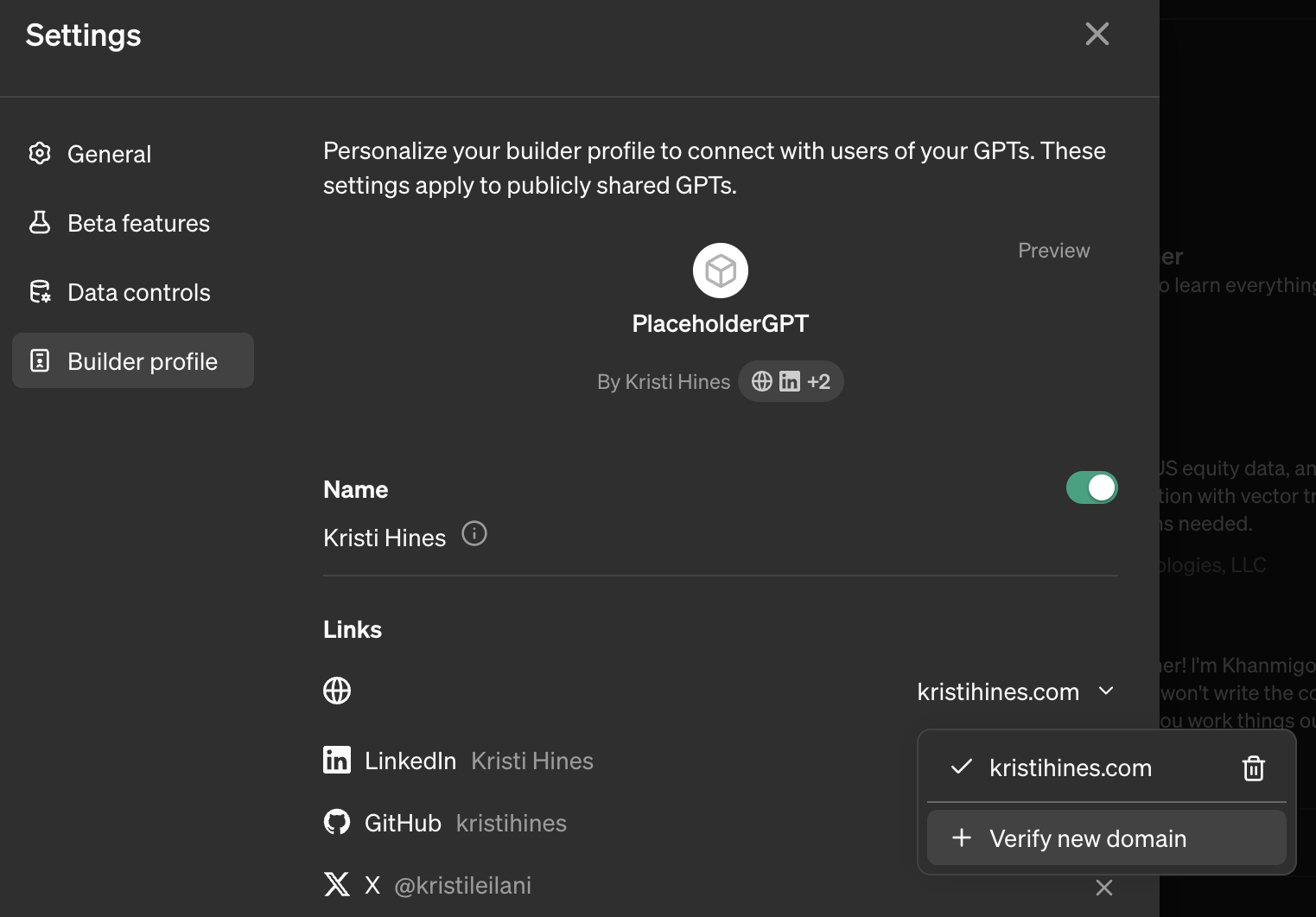 Screenshot from ChatGPT, February 2024
Screenshot from ChatGPT, February 2024Websites must be verified with a TXT record via your website’s DNS provider.
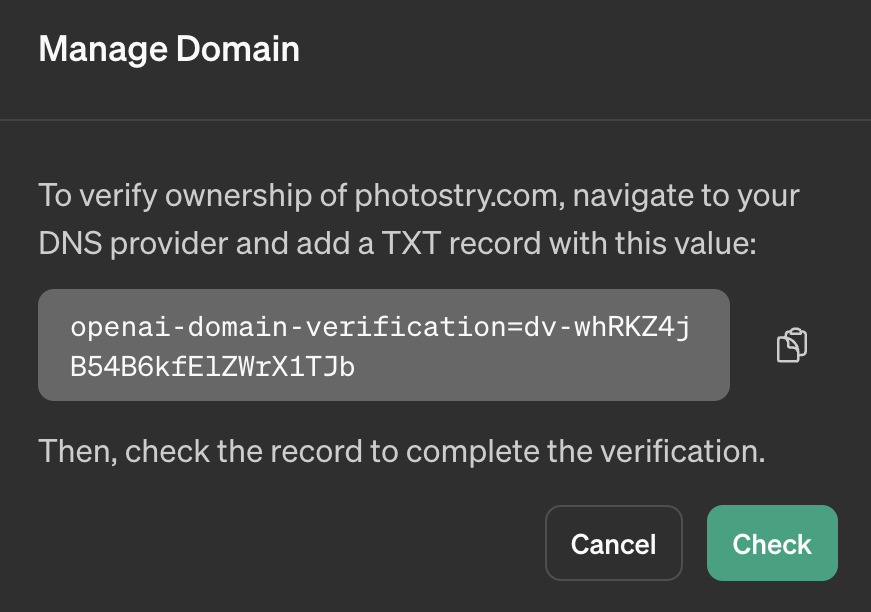 Screenshot from ChatGPT, February 2024
Screenshot from ChatGPT, February 2024Once added, the link appears on your GPT and in its About section.
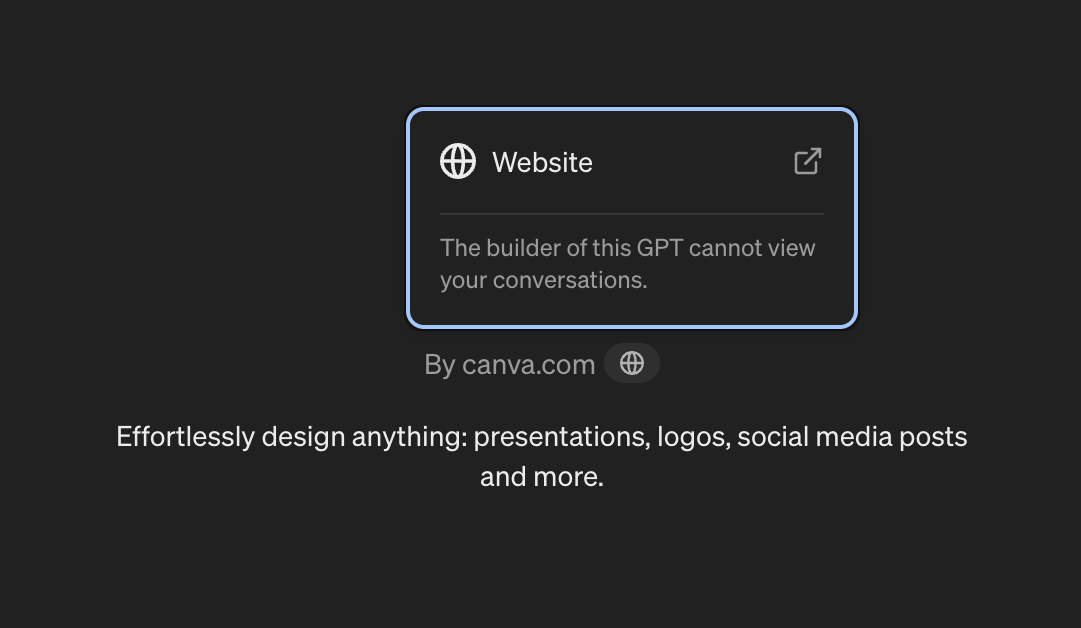 Screenshot from ChatGPT, February 2024
Screenshot from ChatGPT, February 2024As a bonus, links on the builder profile appear to be followed, as Semrush’s backlink analysis noted.
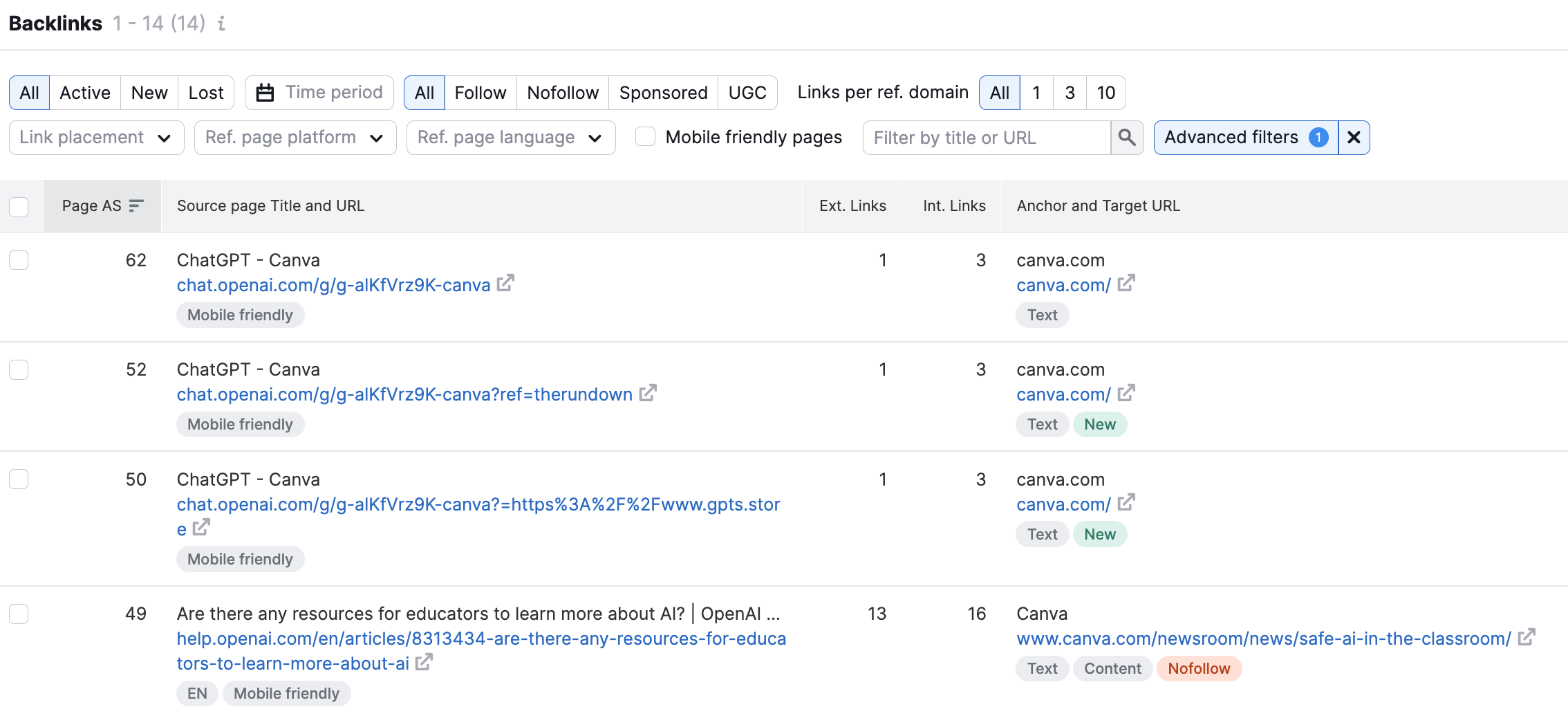 Screenshot from Semrush, February 2024
Screenshot from Semrush, February 20245. Use Social Media To Gain More Visibility In Google SERPs
SEO professionals and Google users alike have noticed the increase of social media posts in search results.
It’s expected when using the Perspectives filter, which offers results from YouTube, TikTok, Quora, Reddit, and other top social networks.
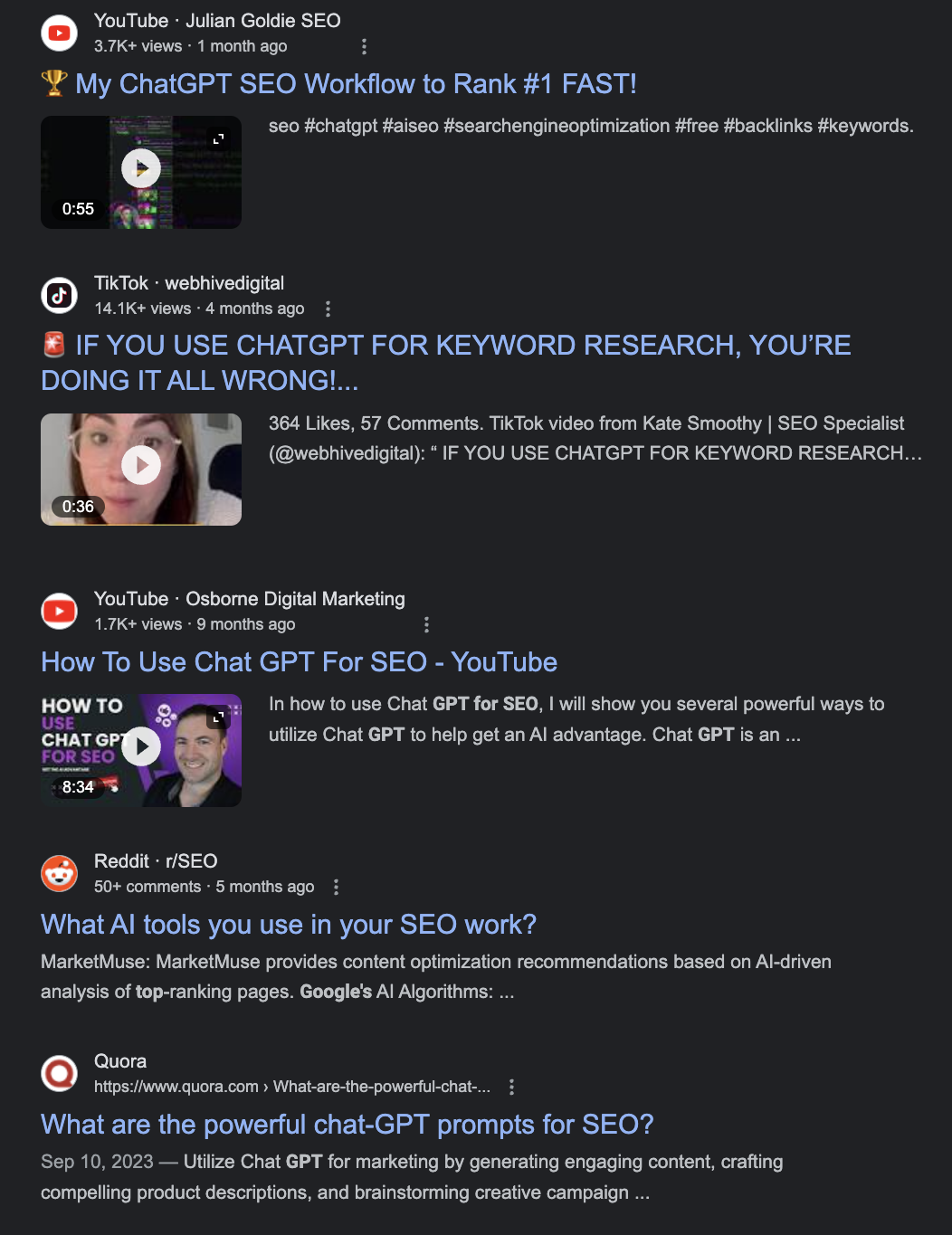 Screenshot from Google, February 2024
Screenshot from Google, February 2024But social media posts – Reddit posts in particular – appear to be taking over regular SERPs, too, leaking past Discussions and Forums.
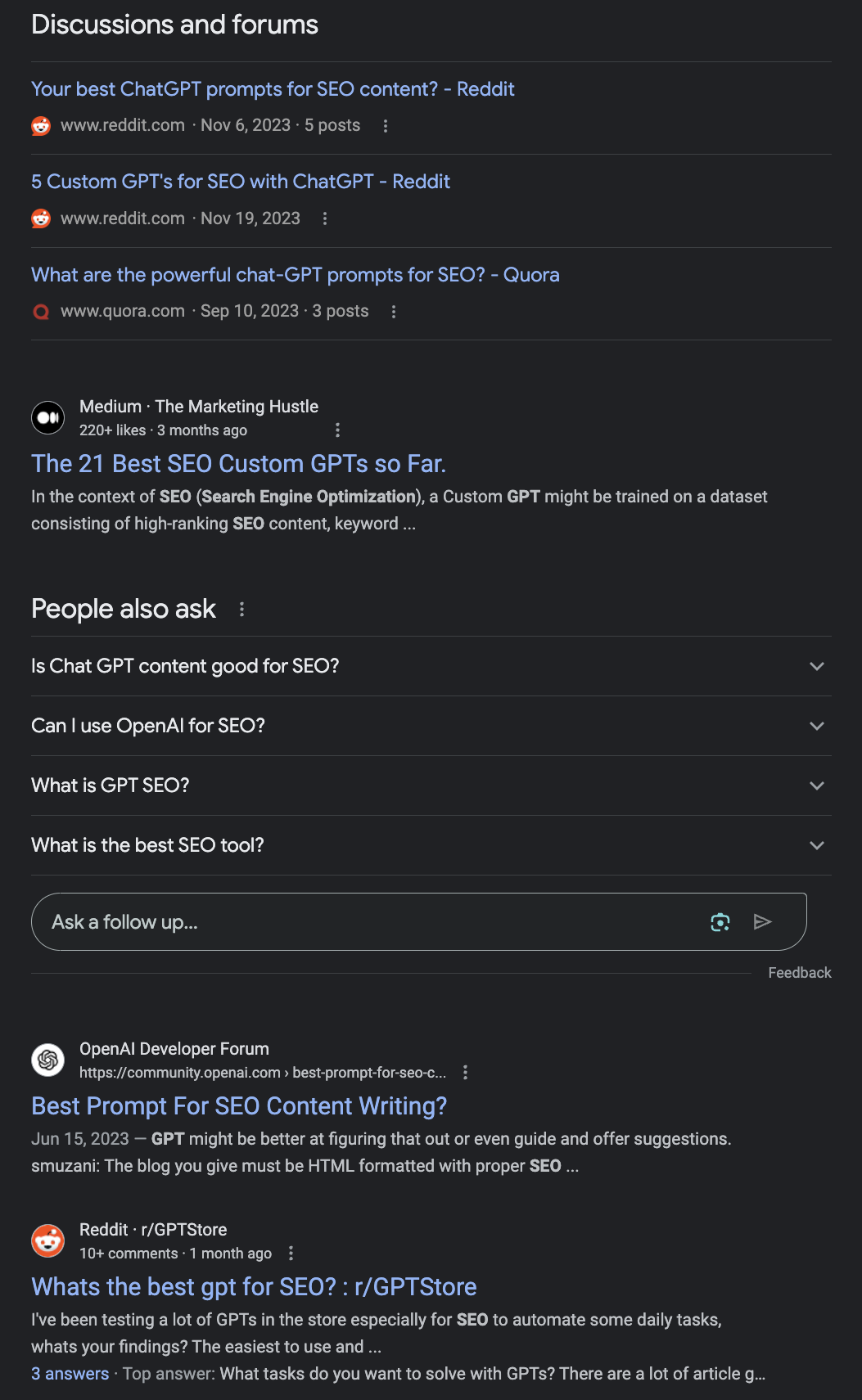 Screenshot from Google, February 2024
Screenshot from Google, February 2024You can use search results for your keywords to determine which social networks, what types of social posts, and, with Reddit, what subreddits rank highest in Google Search.
 Screenshot from Semrush, February 2024
Screenshot from Semrush, February 2024This analysis should reveal if you can create new content on the same network to rank for your target phrase or add to the content that currently ranks through social comments. Or possibly both.
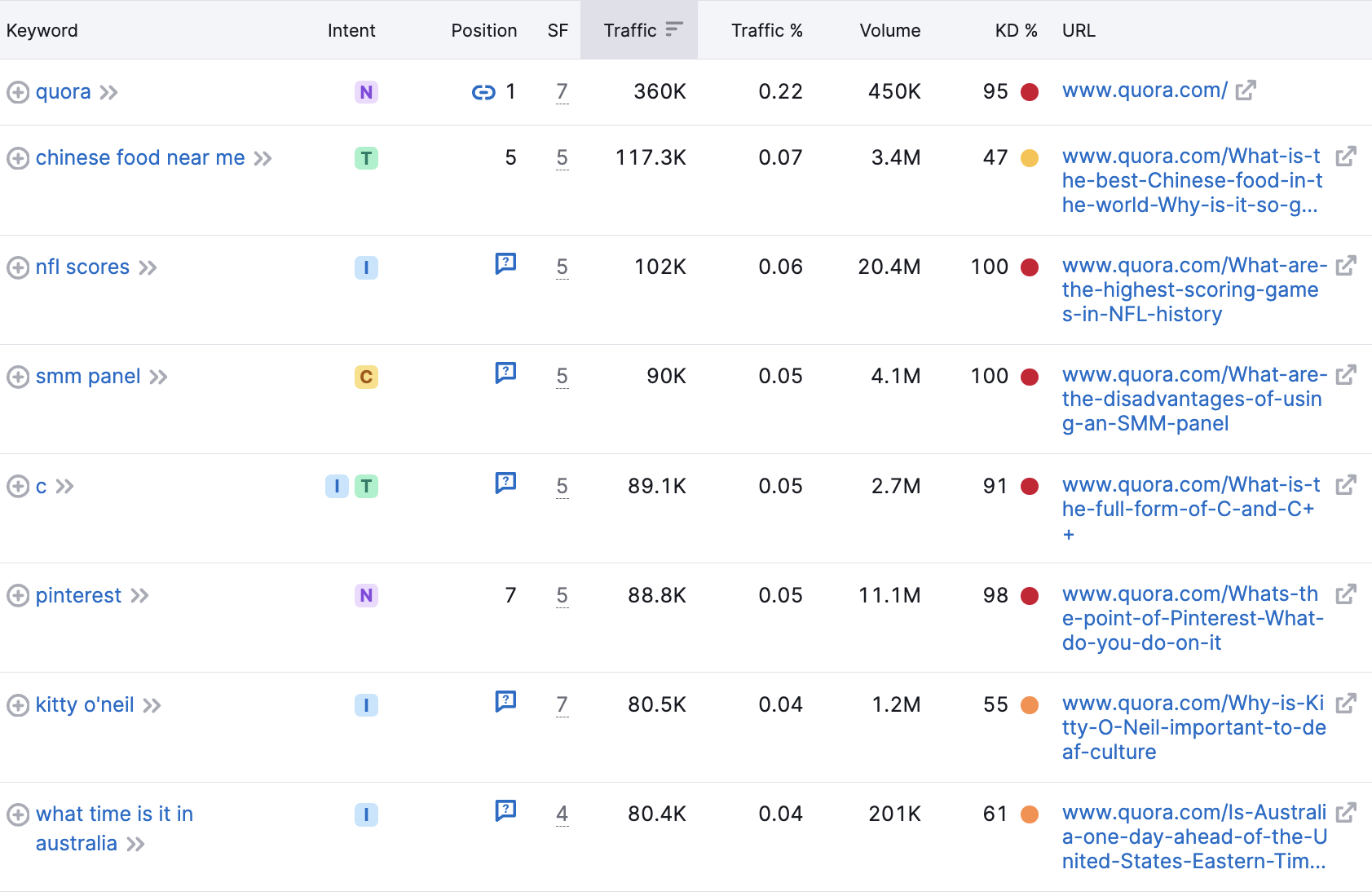 Screenshot from Semrush, February 2024
Screenshot from Semrush, February 2024When participating in subreddits or answering questions on platforms like Quora, you must offer valuable information that simultaneously directs the reader to your GPT without being overtly self-promotional.
Otherwise, your post, comment, or answer could be downvoted by the community and removed by the moderator.
With social networks like YouTube, TikTok, and X, the goal is to create video or text optimized for your keywords.
For highly competitive keywords, your social content will also need engagement from other users to ascend to the top of search results within the platform and on Google.
While social engagement isn’t a ranking factor, metrics for views, likes, reactions, and comments appear for social posts from various channels in Google Search results. Hence, engagement matters.
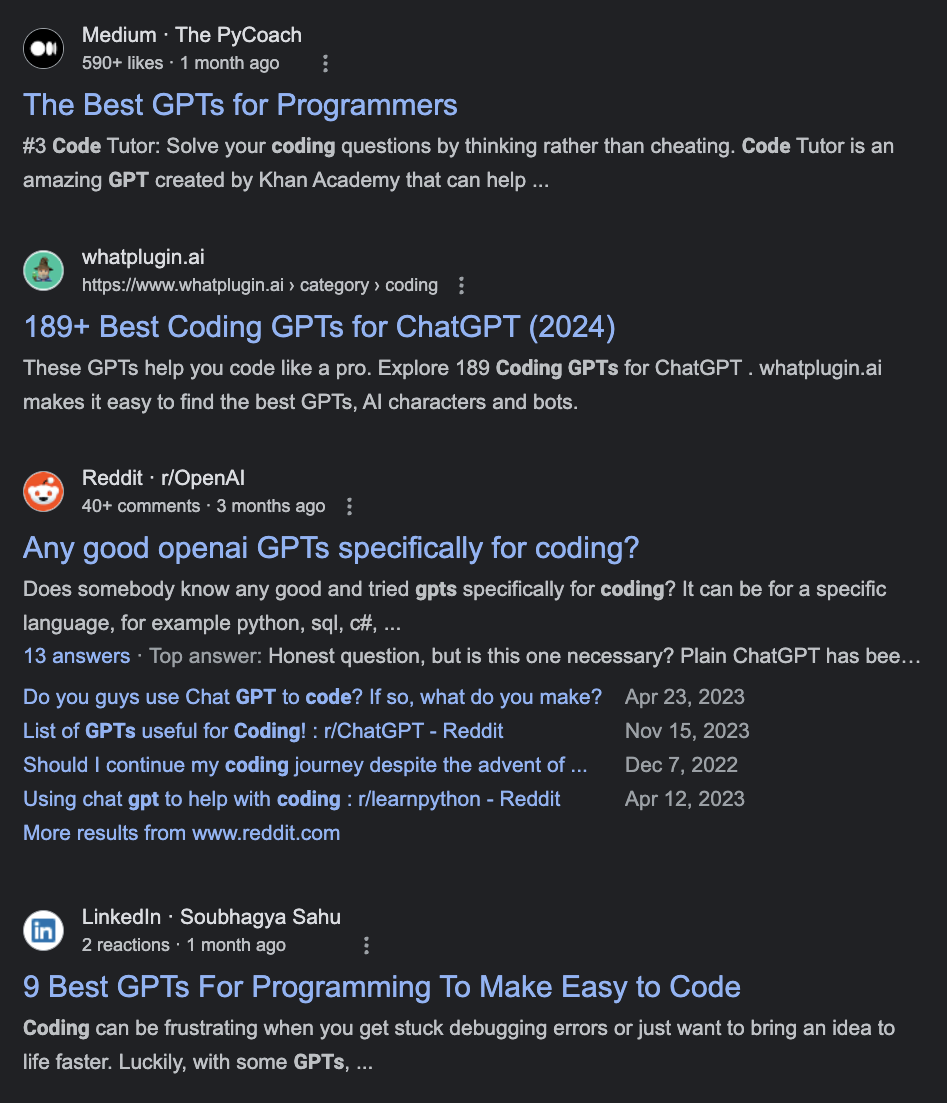 Screenshot from Google, February 2024
Screenshot from Google, February 20246. Improve GPT User Experience Metrics For Better CTR
When people search the GPT Store, they will see the number of conversations by each result.
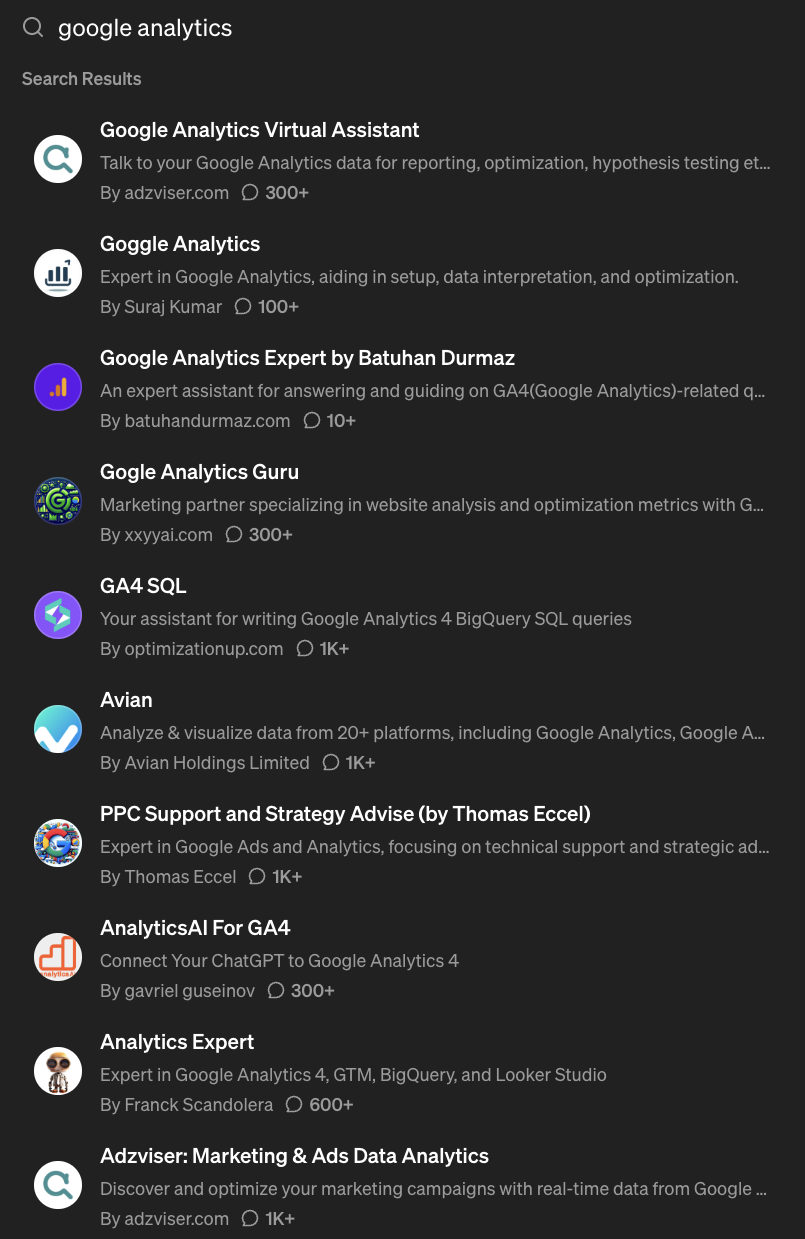 Screenshot from ChatGPT, February 2024
Screenshot from ChatGPT, February 2024When users click on one of the results or visit the About section, they will see its capabilities, number of conversations, number of ratings, and average ratings out of five stars.
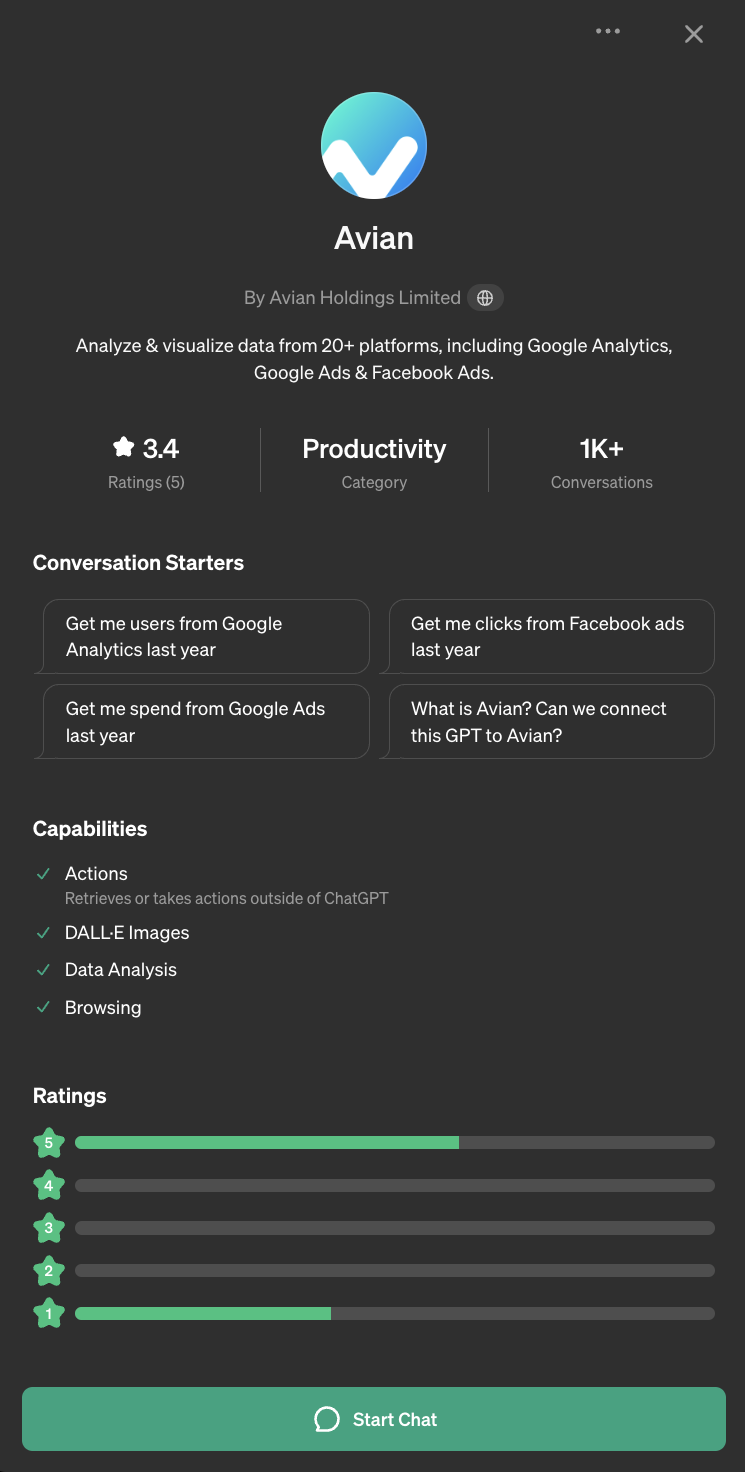 Screenshot from ChatGPT, February 2024
Screenshot from ChatGPT, February 2024These metrics will make a pivotal first impression on potential users, ultimately helping them decide on the right GPT for their needs.
If your GPT works with connects to confidential data, it must maintain a positive rating to gain a new user’s trust.
To ensure users have a positive experience:
- Introduce key features and capabilities with Conversation Starters.
- Test thoroughly and often. Especially after OpenAI or third-party services utilized by your GPT announce updates to features and functionality.
- Opt-in to user feedback emails in your builder profile settings. Review the feedback you receive and make updates to your GPT as needed.
- Follow OpenAI’s status page to get notified if the service is down for users.
- When introducing new GPTs, remind your audience about the privacy and safety risks inherent in any generative AI product.
Conclusion
Optimizing your GPT for visibility and discovery within the GPT Store and on Google is crucial for reaching a wider, more lucrative audience. In addition, it can be a valuable addition to your online marketing assets.
However, anyone who creates a product based on generative AI should be cautious. It’s important to consider that, even with proper configuration and testing, your GPT may still hallucinate or produce factually inaccurate content.
Courts have even determined that businesses must honor offers made by AI chatbots, as CBS News reported.
If it did, would it hurt your bottom line or the reputation of your brand, products, and services? Is that a risk you can take to reach new audiences?
Featured image: Tada Images/Shutterstock
Source link : Searchenginejournal.com
